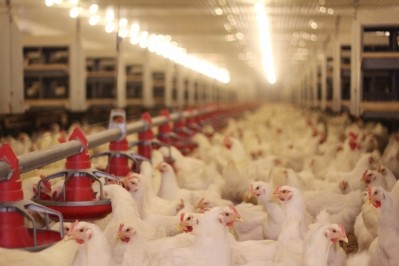Evonik underlines probiotic ambitions with IPPE launch

The feed amino acid specialist said the probiotic, GutCare PY1, will initially be introduced in the US market, and other countries will follow.
Evonik said the move is part of its ambition to make an “even greater contribution” to the efficiency and sustainability of animal feed by complementing its portfolio with innovative feed additives beyond amino acids.
The direct fed microbial is said to have a positive impact on the healthy balance of bacteria populations in the chicken gut, particularly under stressful conditions.
The company said it initiated a multi-parameter selection process to screen more than 500 strains of the bacterial type Bacillus subtilis for probiotic properties.
“Different scientific in-vitro as well as in-vivo studies demonstrated the ability of Bacillus subtilis DSM 32315 to modify the gut microbiota to inhibit the conditions that encourage different necrotic enteritis outbreak isolates,” said the producer.
In July 2016, Evonik expanded its portfolio on buying that part of Spanish company Norel’s probiotic business, in doing so it acquired two probiotics - Ecobiol, a Bacillus amyloliquefaciens CECT 5940 for poultry and Fecinor, an Enterococcus faecium CECT 4515 for piglets.
Last December saw Evonik end its probiotic collaboration with Danish producer, Chr. Hansen in the Asia Pacific region, with the specialist chemical company citing plans to develop markets for its own probiotic feed additives.
Antibiotic alternatives
Dr Emmanuel Auer, head of the animal nutrition business at the German company, told us last year that in Evonik’s strategy to develop alternatives to antibiotics, probiotics were key.
He said the German firm believes the full potential of the probiotics market has not yet been fully exploited. “We would like to seize this opportunity,” said Auer.
The company has dedicated a significant share of its biotechnology R&D budget to probiotics.
“The effects and benefits of probiotics depend on a complex metabolic system. Our well-researched, scientific approach aims to further develop trust in this product group. Evonik has invested in gut health and diagnostic competence and we are collaborating with renowned research institutes worldwide,” he said.
In terms of what Evonik sees as the current knowledge gaps around the benefits or otherwise of the use of probiotics in the diets of pigs, poultry, dairy and fish, Auer noted:
“At the moment, there is still a lot to explore scientifically [in order] to develop the right products and application services in the area of probiotics. One of the major challenges of probiotics is to get consistent results in different regions across the globe and [varied] customer environments. Therefore, we are building up the know-how on how the strain, the animal (host) and external factors (livestock management) interact and influence each other.”
He said Evonik has strengths in the poultry area but also wants to exploit its good position in the pig and aqua segment in relation to probiotic research.














